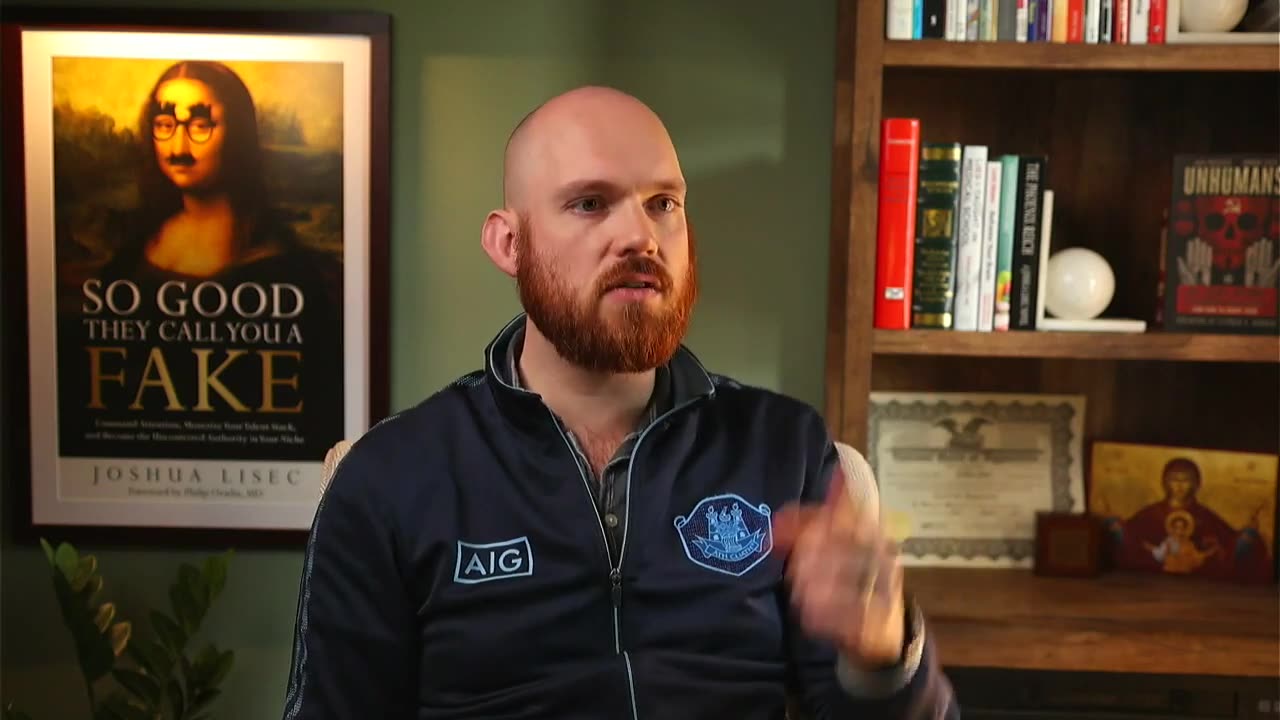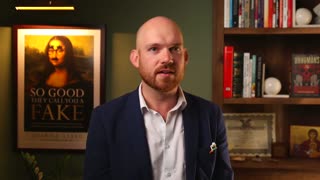Premium Only Content

Resolve Dysfunctional Relationships ft. Virginia Satir Categories — Daily Persuasion Ep. 189
Would you like to write a persuasive BOOK? One that changes minds and influencers behavior for years to come? Start with a GOLDEN book idea. Let NEW YORK TIMES bestselling author Joshua Lisec teach you: https://lisecghostwriting.com/golden
ABOUT TODAY'S EPISODE:
What if the key to fixing your most dysfunctional relationships… is just five hand gestures?
In Episode 189 of Daily Persuasion, titled “Resolve Dysfunctional Relationships ft. Virginia Satir Categories,” Joshua Lisec dives deep into the legacy of Virginia Satir, one of the most influential minds in therapy, communication, and yes—persuasion. Her famous Satir categories offer a remarkably simple framework to identify dysfunction, transform behavior, and bring clarity to the chaos that fractures relationships.
Lisec—New York Times bestselling author, certified hypnotist, and master of self persuasion—uses this episode to break down the Satir categories: Blaming, Placating, Computing, Distracting, and the ultimate solution—Leveling. With his trademark blend of wit, depth, and persuasion psychology, Lisec helps you see exactly which of these dysfunctional strategies you’re using—and how to level up your life and relationships by replacing them.
This isn’t just therapy talk—it’s about how to resolve dysfunctional relationships using persuasion techniques that empower you to reclaim control. Whether it’s a marriage that’s spiraling, a friendship that feels like a trap, or even a work situation that drains your will to live, Lisec shows how the Virginia Satir categories can help you reset the emotional tone and lead others toward collaboration.
You'll learn:
• Why Blaming sounds like “I can’t do this because of you”—and how to reframe it using self persuasion to say: “What will happen when I do?”
• Why Placating is toxic people-pleasing that looks like kindness—but is really surrender.
• Why Computing is overthinking disguised as problem-solving—and how it paralyzes instead of produces.
• Why Distracting keeps you numb, unfocused, and vulnerable to emotional manipulation—and the solution to distracting is always Leveling.
• What it actually means to level with someone and say: “We have a problem—and we’ll handle it.”
Lisec doesn’t just teach you how to resolve a conflict—he shows you how to persuade others by persuading yourself first. All persuasion begins with self persuasion, and every persuasive technique becomes more effective when you no longer rely on blame, pleasing, logic alone, or escapism.
Whether you're trying to persuade someone to do something, get buy-in on an idea, or stop letting a dysfunctional dynamic control your life, Lisec brings the tools you need. He uses relatable persuasion examples from romantic relationships, family tensions, and professional communication to prove that the Satir categories still hold power today.
And for the copywriters and content creators in the audience? This episode is loaded with transferable techniques of persuasion in writing, showing how dysfunction in our personal lives mirrors dysfunction in messaging. If you can learn to stop placating and start leveling with your audience, your words will finally land.
You’ll also discover how this ties into broader frameworks of persuasion psychology, neuro-linguistic programming, and even examples of persuasion in advertising—because whether you’re trying to change a mind or change your life, the same principles apply.
🧠 Episode 189 of Daily Persuasion is more than therapy. It’s strategy. It’s emotional leadership. It’s what you do before you write the perfect message, pitch the perfect offer, or make the perfect apology.
🧩 Resolve Dysfunctional Relationships ft. Virginia Satir Categories is your playbook for what to say, how to say it, and how to fix what’s broken—starting with yourself.
👉 Watch now and learn from Lisec how to move from dysfunction to persuasion. From avoidance to authority. From chaos to control. All by mastering five categories—and unlocking one life-changing phrase:
We have a problem. And we’ll handle it.
-
 9:52
9:52
Daily Persuasion with Joshua Lisec
2 days agoTucker vs. Nick Fuentes Takeaways Plus Trump's Bitcoin Speech, NPR, & the Rapture — Ep. 333
721 -
 1:45:29
1:45:29
MTNTOUGH Podcast w/ Dustin Diefenderfer
7 hours agoTaya + Colton Kyle: Can American Marriages Survive 2025? | MTNPOD #140
95 -
 1:12:23
1:12:23
The Bold Lib
15 hours agoSay Something Beyond W/MikeMac: JOKER - Ep.12
50 -
 LIVE
LIVE
LFA TV
16 hours agoLIVE & BREAKING NEWS! | MONDAY 11/3/25
3,360 watching -
 1:30:13
1:30:13
Game On!
13 hours ago $6.64 earnedChiefs Dynasty OVER, New Longest FG RECORD, and Patriots Are Winning The Super Bowl!
18.1K2 -
 LIVE
LIVE
The Bubba Army
3 days agoIS AMERICA OVER TRUMP? - Bubba the Love Sponge® Show | 11/03/25
1,530 watching -
 48:57
48:57
Man in America
18 hours agoThe Sinister Reason They Put Fluoride in Everything w/ Larry Oberheu
362K100 -
 1:06:56
1:06:56
Sarah Westall
15 hours agoAstrological Predictions, Epstein & Charlie Kirk w/ Kim Iversen
99.8K71 -
 2:06:49
2:06:49
vivafrei
1 day agoEp. 289: Arctic Frost, Boasberg Impeachment, SNAP Funding, Trump - China, Tylenol Sued & MORE!
287K215 -
 2:56:28
2:56:28
IsaiahLCarter
19 hours ago $14.64 earnedThe Tri-State Commission, Election Weekend Edition || APOSTATE RADIO 033 (Guest: Adam B. Coleman)
62.7K8